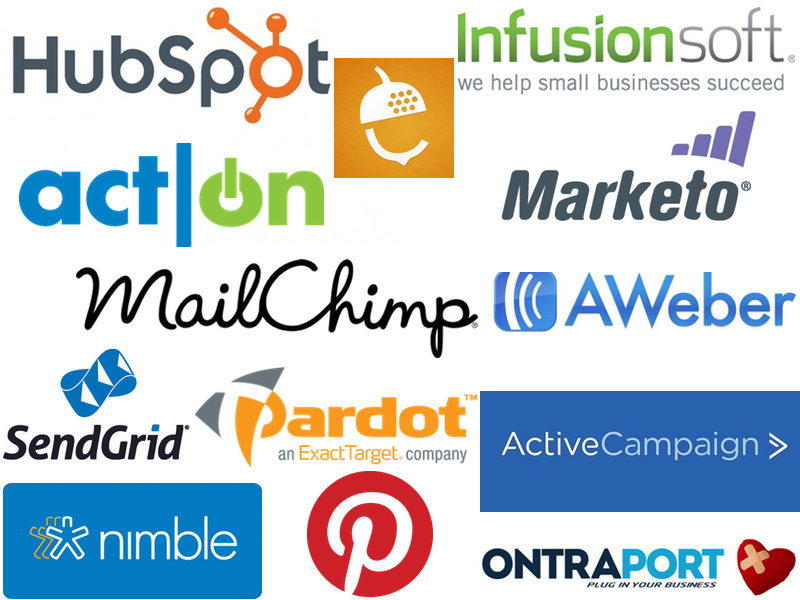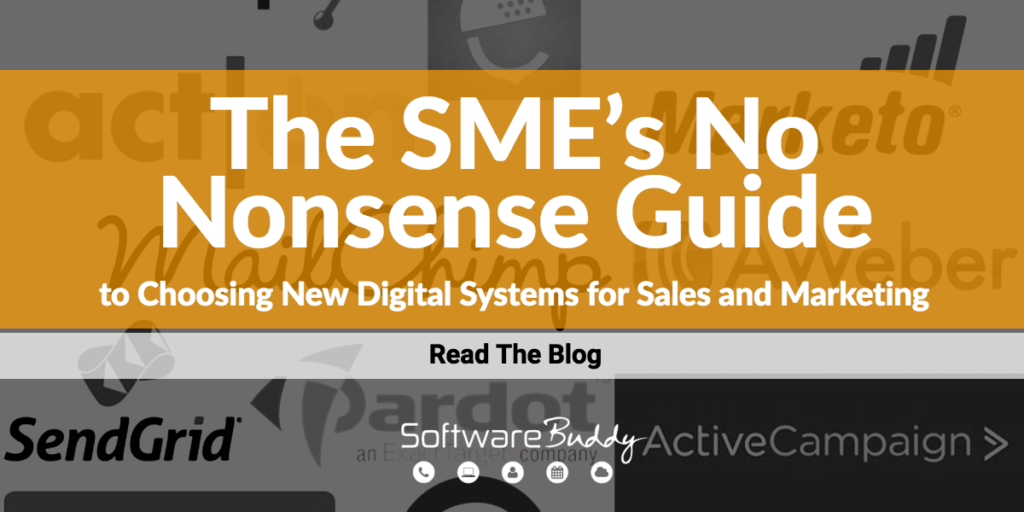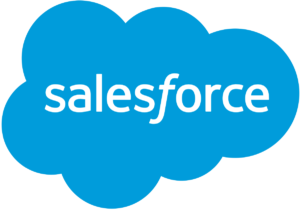Introduction to Digital Sales & Marketing Systems
Digital Sales and marketing lends itself particularly well to digital transformation.
In a research project for SME web, detailing the impact of digital technology, digital marketing professor Margherita Pagani found that many small businesses are afraid to digitise, because of the cost and effort required.
From her research, Pagani says that,
“Even relatively simple steps, such as introducing advanced cloud-based technology, such as a Customer Relationship Management (CRM) system, can dramatically increase the efficiency of internal processes and improve company co-ordination.”
Digital sales and marketing tools can also help you to:
-
- Be GDPR compliant (another benefit of digital transformation!
- Give you more useful customer data so your sales team can make more sales
- Automate marketing processes to save you time and money (yet another digital transformation benefit(!)
Ramon Ray, a small business evangelist for Infusionsoft says, “The only way you do not need CRM is if you have a very, very small business with five clients, maybe ten. Then you may be able to get by with something like Google Contacts. But as you grow, you’re going to need something more sophisticated.”
Choosing A New Digital Sales System
There are lots of CRM and sales pipeline systems to choose from so to help you decide we’ve taken a look at some of the biggest CRMs on the market.
If you find these don’t quite meet your needs, you can then look at more specialised systems developed for your industry.
Sales Force:
Sales Force is the most popular CRM system in the world.
As with any CRM, Sales Force gives you a central store for all of your client information.
You can create a record for each lead or customer, nurture leads, assign leads to different sales or team members, track how effective marketing campaigns are and even automate some processes.
It will integrate with hundreds of other apps and tools and give you reports and dashboards so you have a better handle on where you’re at.
HubSpot:
HubSpot is both, a CRM and a marketing automation tool in one. So you can use it to digitise both your marketing and sales functions. Or, if you prefer, use the CRM tool independently.
One of the great things about HubSpot is it’s a very visual, friendly system so you have a visual dashboard which shows you your digital sales funnel at a glance.
HubSpot will also do things like logging sales activity automatically and give you a timeline of all interactions with every lead.
You’ll have lots of questions when choosing a CRM system and a checklist of things you need to know such as:
- How many users does it support?
- Is there an app and desktop version?
- Does it integrate with your other tools such as email marketing platform?
If you’re still unsure about which CRM to choose, Software Buddy can help. As part of our digital transformation consultation, we’ll fully audit and evaluate your needs and help you choose a CRM that will make your sales activity easier, more productive and more profitable.
What About Marketing Tools?
Digitising your marketing is a smart move – especially if you hardly have time to log in to LinkedIn and write a few posts at a time.
There are hundreds of marketing automation systems to choose from, but only a couple that will suit your business.
Here are a few of the more popular ones:
HubSpot: As well as its CRM tool, HubSpot is one of the leading marketing automation systems going.
It can do some of the heavy lifting across your website, blogging, SEO and social media, will help you share content, schedule posts, create new landing pages and generate email sequences.
MailChimp:
MailChimp calls itself the leading marketing automation platform.
It says it’s a ‘second brain’ (and you can never have too many of those!) which will help you to find your audience, engage your customers and build your brand.
MailChimp is known as an email marketing platform and works really well for welcoming new customers, sending reminder emails and following up with customers

Hootsuite:
If social media is the lifeblood of your business (Facebook is the second most popular source of reviews) having a tool like Hootsuite queued up can be a big time saver.
You can use it to pre-schedule social media posts across several social media channels. It will even suggest when the best time to post is.
Hootsuite keeps an ear to the ground so you can keep track of your mentions and you can use their reports to see things like engagement and followers.
Knowing How GDPR Affects You
With the new GDPR legislation in force around Europe, having both a sales CRM and a marketing tool can help you remain compliant.
One of the key aspects of GDPR is that you need consent to keep in touch with people and that they have a right to be taken off your email list.
You can use your marketing automation tool to send regular emails requesting to stay in touch. Then, your CRM can easily remove leads who want their personal information to be forgotten.
An online system is often a lot more secure than keeping paper files around your office. Another key part of GDPR compliance.
So how do you go about choosing a marketing automation tool whilst juggling all of your other digital transformation decisions?
This article from HubSpot is a great place to start. https://blog.hubspot.com/insiders/how-to-choose-marketing-automation-platform
You will need to think about things like how easy to use the system is, how much it can be personalised and how easily it can be integrated with other tools such as your sales CRM.
When you’re ready to make a decision, get in touch with Software Buddy.
One of our pros can help you choose the right operational tools by carrying out a full digital transformation audit and system assessment.





